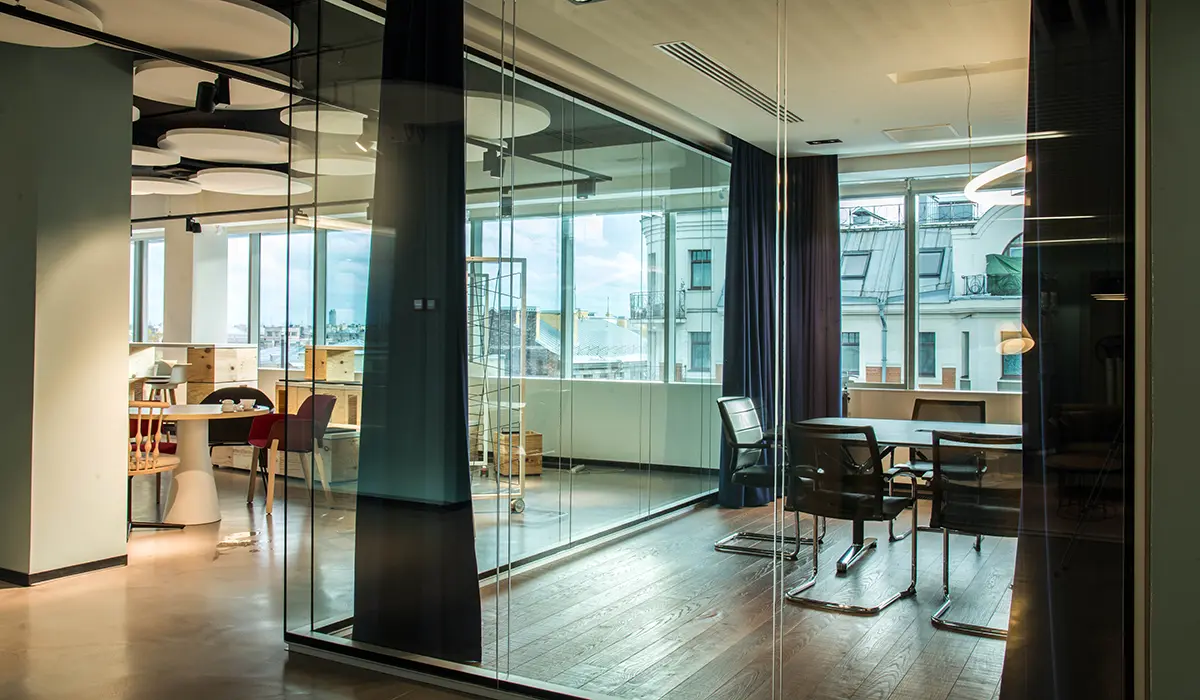Smart Offices: How Technology is Changing Serviced Workspaces
The modern workplace is undergoing a rapid transformation, driven by advancements in technology. Traditional office spaces are evolving into smart offices, offering businesses a more efficient, flexible, and cost-effective working environment. This shift is particularly evident in serviced workspaces, where businesses of all sizes benefit from state-of-the-art technological solutions without long-term commitments or hefty investments.
From IoT-enabled devices to AI-powered automation, technology is redefining how serviced offices operate, providing enhanced convenience, improved productivity, and seamless collaboration. Here, we explore the key technologies shaping smart offices and their impact on serviced workspaces.
The Role of Technology in Smart Offices
Smart offices integrate digital solutions to optimise office operations, streamline workflows, and create a more comfortable and productive environment. The following technologies are driving this revolution:
Internet of Things (IoT) and Smart Devices
The Internet of Things (IoT) is at the forefront of the smart office movement, enabling seamless connectivity between devices. In serviced workspaces, IoT-enabled systems enhance security, energy efficiency, and convenience.
- Smart Lighting and Climate Control: IoT sensors adjust lighting and temperature based on occupancy and user preferences, reducing energy costs and creating a comfortable environment.
- Smart Access Control: Biometric scanners, keyless entry systems, and facial recognition ensure secure and hassle-free office access.
- Connected Workstations: Desks with built-in charging ports, wireless connectivity, and height-adjustable features promote ergonomic working conditions.
Artificial Intelligence (AI) and Automation
AI is transforming serviced offices by automating routine tasks and improving decision-making.
- AI-Powered Virtual Assistants: Chatbots and AI-driven personal assistants help with scheduling, answering queries, and managing administrative tasks.
- Predictive Maintenance: AI analyses data from sensors to predict and prevent equipment failures, reducing downtime and maintenance costs.
- Automated Booking Systems: AI-based room reservation systems optimise meeting room usage, preventing double bookings and improving efficiency.
Cloud Computing and Remote Collaboration Tools
Cloud technology has revolutionised how businesses operate by providing on-demand access to software, data storage, and collaboration tools.
- Virtual Office Solutions: Cloud-based office suites like Google Workspace and Microsoft 365 enable businesses to work from anywhere, making serviced offices an ideal choice for remote and hybrid teams.
- Seamless File Sharing and Storage: Cloud-based storage solutions ensure that important documents are accessible to team members from any location.
- Video Conferencing and Collaboration Tools: Platforms like Zoom, Slack, and Microsoft Teams facilitate real-time communication, reducing the need for in-person meetings and increasing efficiency.
5G Connectivity and High-Speed Internet
Fast and reliable internet is a necessity in today’s digital world. Serviced offices are upgrading to 5G networks to provide businesses with superior connectivity.
- Ultra-Fast Data Transfers: 5G speeds allow seamless video conferencing, large file transfers, and real-time collaboration.
- Enhanced Security: 5G networks offer improved encryption, reducing cybersecurity risks.
- IoT Expansion: With faster internet speeds, more smart devices can be connected without compromising performance.
Smart Furniture and Workspaces
Furniture is no longer just functional—it’s becoming an integral part of the smart office ecosystem.
- Adjustable Standing Desks: AI-powered desks that remember user preferences promote healthier working postures.
- Smart Meeting Rooms: Equipped with voice-activated controls, interactive displays, and AI-driven transcription services for efficient note-taking.
- Occupancy Sensors: These sensors detect workspace usage patterns, helping office managers optimise seating arrangements and common areas.
Sustainable and Green Technologies
Technology is also playing a crucial role in making serviced offices more sustainable.
- Energy Management Systems: Smart meters and automated energy-saving systems reduce power consumption.
- Eco-Friendly Workspaces: Many serviced offices are integrating green building materials, water-saving devices, and solar panels.
- Waste Reduction Through AI: AI-driven waste sorting and recycling initiatives contribute to a greener environment.
The Benefits of Smart Technology in Serviced Workspaces
Technology-driven smart offices offer several advantages, making them the preferred choice for businesses looking for flexibility and innovation.
Increased Productivity
Automated systems and AI-driven tools free up employees from repetitive tasks, allowing them to focus on higher-value activities. Smart meeting rooms and collaboration tools streamline workflows, improving overall efficiency.
Cost Savings
Serviced offices equipped with smart technology help businesses cut costs through:
- Lower energy consumption due to IoT-enabled lighting and climate control.
- Reduced administrative expenses with AI-powered automation.
- Efficient space utilisation, minimising wasted resources.
Enhanced Security
With advanced security features such as biometric access, surveillance cameras, and AI-driven cybersecurity measures, serviced offices provide a safer working environment.
Flexibility and Scalability
Businesses can scale their operations easily in a smart office environment. Serviced workspaces offer adaptable layouts, plug-and-play office setups, and pay-as-you-go plans that cater to growing teams and changing business needs.
Improved Employee Experience
Smart offices create a more comfortable and engaging work environment by:
- Offering personalised workspaces with adjustable settings.
- Enabling remote work and collaboration through cloud technology.
- Using AI to enhance office amenities, from cafeteria services to wellness programs.
Conclusion
Technology is reshaping the future of serviced workspaces, making them more intelligent, efficient, and sustainable. With innovations in IoT, AI, cloud computing, and 5G connectivity, businesses can enjoy a seamless and productive working environment. As the demand for flexible office spaces grows, serviced offices that integrate smart technology will continue to lead the way, offering businesses a competitive edge in the modern workplace.
Whether you’re a startup, a freelancer, or a large corporation, embracing smart office solutions in serviced workspaces can enhance productivity, reduce costs, and provide an exceptional working experience. As technology continues to evolve, the future of serviced offices looks more promising than ever.
For more information on Serviced Workspaces contact Highstone Business Centre.
